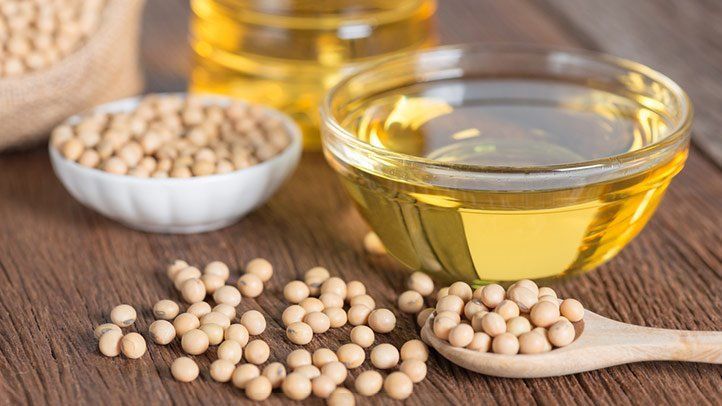Categories
The latest content
-

Customs Clearance & Import Regulations for Bulk Iranian Pinto Beans in EU, Middle East & Africa
..
-

Quality Control & Laboratory Testing Standards for Iranian Pinto Beans
..
-

Logistics & Shipping Solutions for Bulk Iranian Pinto Bean Exports
..
-

Minimum Order Quantity (MOQ) & Bulk Pricing for Iranian Pinto Bean Buyers
..

Tags
Ultimate Guide to Importing Premium Iranian Soybean Oil in Bulk; Varieties, Certifications & Global Market Insights

Iran has been recognized as a major agricultural hub for centuries, and among its diverse agro-based exports, soybean oil has steadily gained importance in global trade. With rising demand for healthier and versatile edible oils, Iranian soybean oil offers competitive advantages for wholesalers, distributors, and food processors around the world. This comprehensive guide explores everything you need to know about importing premium Iranian soybean oil in bulk, including its types, certifications, quality standards, logistics, and future market trends.
1. Why Iranian Soybean Oil?
Iran’s soybean oil industry benefits from a strategic geographical position, fertile lands, and access to advanced processing technologies. This combination allows exporters to produce high-quality oils that meet the requirements of food, pharmaceutical, cosmetic, and industrial applications.
Key advantages include:
• Competitive pricing compared to Western markets.
• Diverse production ranging from refined to organic and high-oleic soybean oil.
• Compliance with international certifications such as ISO, HACCP, Halal, and Organic standards.
• Strong logistics network for global distribution across Europe, the Middle East, Africa, and Asia.
2. Main Varieties of Iranian Soybean Oil
When importing in bulk, it is essential to understand the available varieties to match your market needs. The most common categories include:
• Refined Soybean Oil – Widely used for cooking and food processing due to its neutral flavor and long shelf life.
• Crude Soybean Oil – Mainly imported by refiners or industries requiring further processing.
• Organic Soybean Oil – Grown and processed without chemicals or pesticides, appealing to health-conscious consumers.
• High-Oleic Soybean Oil – Rich in monounsaturated fats, offering better oxidative stability and ideal for frying and packaged foods.
3. Certifications Required for Soybean Oil Import
To ensure credibility and compliance with importing country regulations, Iranian soybean oil exporters follow strict quality and safety certifications, such as:
• ISO 22000 & HACCP – For food safety management systems.
• Halal Certification – Essential for markets in the Middle East and Islamic countries.
• Organic Certification – Required for premium retail markets in the EU and North America.
• GMP (Good Manufacturing Practices) – For pharmaceutical and cosmetic industries using soybean oil as raw material.
4. Minimum Order Quantity (MOQ) & Pricing Insights
MOQ and pricing vary depending on oil type, packaging, and destination. Typically:
• Refined oil is sold in large bulk containers (IBC tanks or flexitanks) with MOQ starting at 20 MT.
• Organic & specialty oils often have smaller MOQs, around 5–10 MT, due to higher value.
• Pricing is influenced by global soybean prices, shipping routes, packaging costs, and international demand cycles.
5. Logistics & Shipping Solutions
Importing bulk Iranian soybean oil requires reliable logistics and cold-chain solutions to maintain oil freshness and quality. Common shipping methods include:
• Flexitanks for bulk liquid transport (most cost-effective).
• ISO tank containers for long-distance transport with better protection.
• Drums or IBC totes for medium-scale buyers.
Iran’s proximity to Persian Gulf ports ensures smooth connectivity to Europe, Africa, and Asia, reducing transit times compared to competitors.
6. Global Market Insights & Demand Forecast
The global edible oil market is expanding rapidly, with soybean oil accounting for over 30% of vegetable oil consumption worldwide. Iranian soybean oil is gaining traction in:
• EU markets – Driven by demand for organic and sustainably sourced oils.
• Middle East & North Africa – Preferring Halal-certified refined oils.
• Asian markets – Increasing demand for high-oleic oils in food processing industries.
According to international trade forecasts, the demand for soybean oil is expected to grow at 4–5% CAGR over the next decade, making Iranian suppliers strategically positioned to capture a larger share.
7. Why Partner with Tamila Agrifood?
At Tamila Agrifood, we specialize in connecting global buyers with premium Iranian soybean oil suppliers. We ensure:
• Transparent pricing and flexible MOQs.
• Access to certified and tested products.
• Tailored logistics solutions for every market.
• Reliable partnerships with sustainable farmers and producers.
Conclusion
Bulk importing Iranian soybean oil presents wholesalers, retailers, and distributors with an exceptional opportunity to tap into a profitable and growing global market. With diverse varieties, internationally recognized certifications, and strong logistics infrastructure, Iran is rapidly becoming a key player in the global edible oil trade.
Whether you’re a food manufacturer, retailer, or distributor, Iranian soybean oil offers the quality, consistency, and competitiveness your market needs.
Email: tamilaagrifood@gmail.com
Call / WhatsApp: +989141858935



